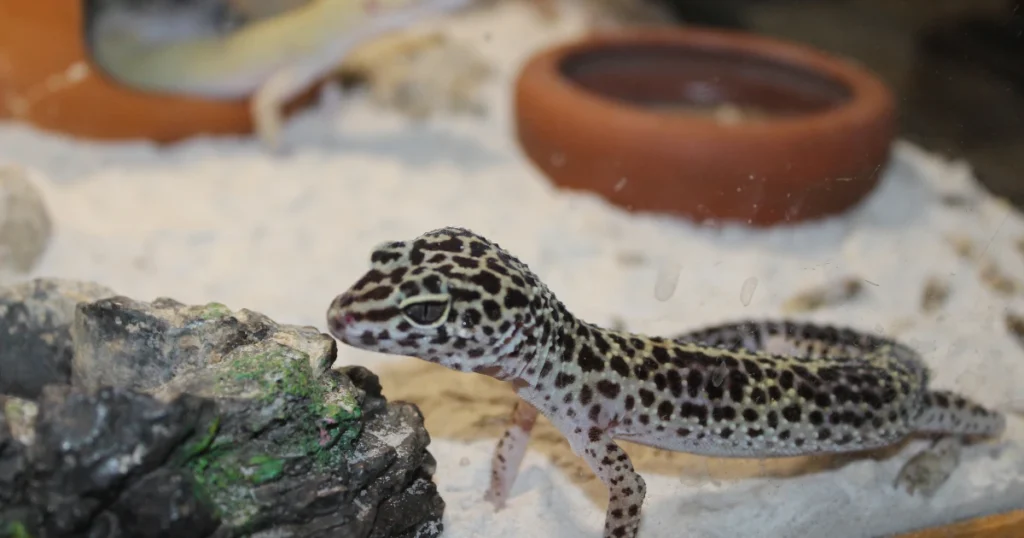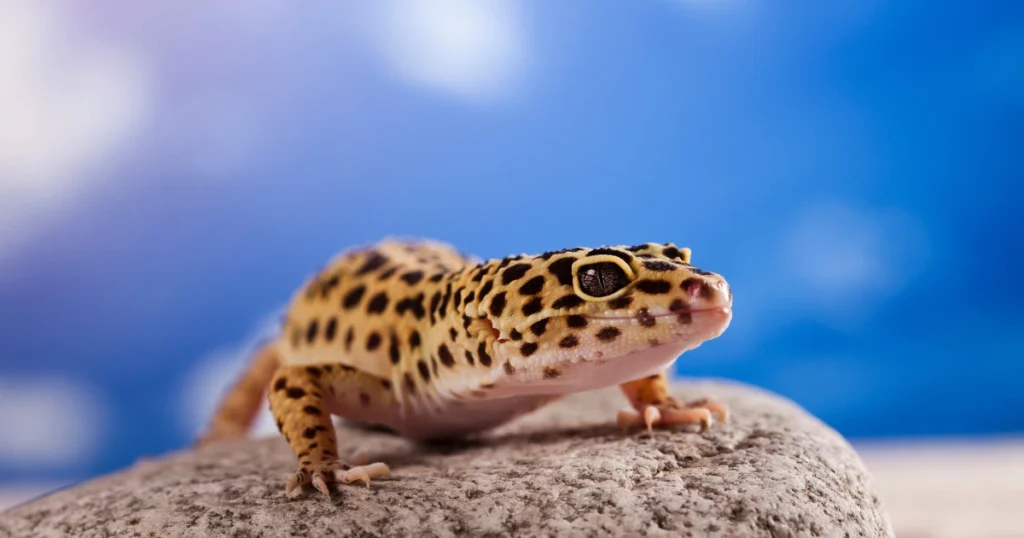
As a reptile lover, few things are more gut-wrenching than seeing the words “leopard gecko mouth rot.” If you’ve welcomed one of these captivating little lizards into your home, you know the immense joy they bring. Watching them explore their habitat, bask under the warmth of their lamp, and devour their favorite treat is an experience like no other.
However, even the most dedicated gecko parent can face challenges. While we pour our hearts into providing the best possible care, issues like this dreaded bacterial infection can still arise. I remember my own heart sinking the first time I suspected mouth rot in my beloved gecko, Ziggy.
He was acting a bit off—lethargic and not as enthusiastic about mealtimes as usual. When I carefully opened his mouth for a closer look, I was hit with an unmistakable foul odor and discoloration around his gums. As panic set in, I knew I needed to take action to treat what was very likely leopard gecko mouth rot.
So, what exactly is this condition that strikes dread in herpers everywhere? And how can we prevent and treat it to keep our scaly friends healthy and smiling? Let’s take a deep dive!
My Personal Experience with Leopard Gecko Mouth Rot
I still remember the first time I noticed something was off with my leopard gecko, Ziggy. He seemed a bit lethargic and wasn’t eating as much as usual.
When I gently opened his mouth to investigate, I was met with a foul odor and some discoloration around his gums. Panic set in, but after some research and a visit to the vet, I learned that Ziggy was suffering from mouth rot, a bacterial infection that can be pretty nasty if left untreated.
What Is Mouth Rot in Leopard Geckos?
Mouth rot, also known as infectious stomatitis, is a bacterial infection that affects the oral cavity of leopard geckos and other reptiles. It’s caused by an overgrowth of bacteria, often due to poor husbandry practices or a weakened immune system.
Common Signs of Mouth Rot
- Discolored or inflamed gums
- Foul odor from the mouth
- Decreased appetite or difficulty eating
- Lethargy
- Excessive saliva or drooling
If left untreated, mouth rot can lead to more severe complications, such as tissue damage, tooth loss, and even respiratory issues if the infection spreads.

What causes mouth rot in leopard geckos?
Several factors can contribute to the development of mouth rot in leopard geckos:
1. Poor hygiene
Unsanitary living conditions, such as an unclean habitat or contaminated water, can introduce harmful bacteria into your gecko’s environment.
2. Improper diet
A diet lacking in essential nutrients or an overabundance of certain foods (like fruits) can compromise your gecko’s immune system, making it more susceptible to infections.
3. Stress
Stress from factors like improper temperatures, overcrowding, or frequent handling can weaken your gecko’s immune defenses and make it more vulnerable to mouth rot.
4. Injuries
Cuts or abrasions in the mouth, often caused by rough handling or aggressive feeding behavior, can provide an entry point for bacteria.
5. Weakened immune system
Underlying health conditions or parasitic infections can compromise your gecko’s ability to fight off bacterial overgrowth.

How to Treat Mouth Rot in Leopard Geckos
If you suspect your leopard gecko has mouth rot, it’s crucial to seek veterinary attention as soon as possible. Your vet may recommend the following treatments:
1. Antibiotics
Oral or injectable antibiotics are typically prescribed to combat the bacterial infection. It’s essential to follow the dosage instructions carefully and complete the entire course of treatment.
2. Topical Treatments
Your vet may also suggest applying antiseptic or antibiotic ointments directly to the affected areas in your gecko’s mouth.
3. Supportive Care
Depending on the severity of the infection, your vet may recommend supplemental fluids, nutritional support, or pain medication to help your gecko recover.
Remember, mouth rot can be challenging to treat, and it may take several weeks or even months for your gecko to fully recover. Patience and diligent care are key during this process.
Preventing Mouth Rot in Leopard Geckos
As they say, an ounce of prevention is worth a pound of cure. Here are some tips to help prevent mouth rot in your beloved leopard gecko:
1. Maintain Proper Habitat Hygiene
Clean your gecko’s enclosure regularly, removing any uneaten food, feces, and soiled substrate. Disinfect the habitat and accessories periodically with a reptile-safe cleaner.
2. Provide a balanced diet
Offer a varied diet rich in essential nutrients, including calcium and vitamin D3 supplements. Avoid overfeeding fruits, as their high sugar content can contribute to bacterial overgrowth.
3. Monitor temperatures and humidity
Leopard geckos thrive in specific temperature and humidity ranges. Maintain appropriate levels to prevent stress and potential immune system suppression.
4. Handle with Care
Be gentle when handling your gecko, and avoid causing any mouth injuries. If your gecko becomes agitated or aggressive during feeding, consider using feeding tongs to minimize the risk of bites.
5. Quarantine New Arrivals
If you’re introducing a new gecko to your existing collection, quarantine it for at least 30 days to ensure it’s not harboring any contagious diseases or parasites.
6. Boost Immune System
Consider adding a reptile-safe probiotic or immune-boosting supplement to your gecko’s diet, especially during times of stress or after illness.
A Relatable Example of Mouth Rot Prevention
I’ll never forget the time I brought home a new leopard gecko, Ziggy, to join my little reptile family. As exciting as it was to welcome a new addition, I knew I had to be extra cautious to prevent any potential health issues. I set up a separate quarantine enclosure and closely monitored Ziggy’s behavior and appetite for the first month.

During that time, I also made sure to deep clean and disinfect my other geckos’ habitats, just to be on the safe side. It was a bit of extra work, but it gave me peace of mind knowing I was doing everything I could to protect my scaly friends from potential infections like mouth rot.
The Importance of Staying Vigilant
Remember, prevention is key when it comes to mouth rot and other reptile health issues. By providing a clean, stress-free environment and a balanced diet, you’ll be giving your leopard gecko the best chance at a long and healthy life.
In the end, dealing with mouth rot can be a challenging experience, but with prompt veterinary care and diligent husbandry practices, your beloved leopard gecko can make a full recovery. Stay vigilant, my fellow reptile enthusiasts, and don’t hesitate to seek professional help if you notice any concerning signs.
Happy herping, and may your geckos always have bright, healthy smiles!
